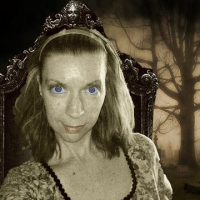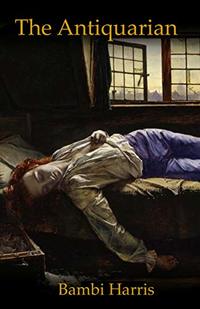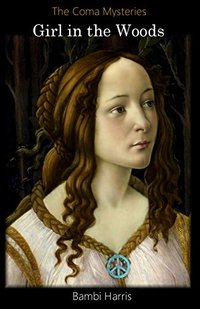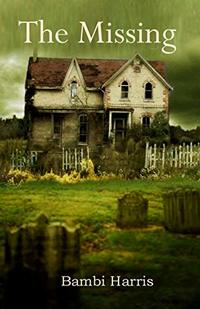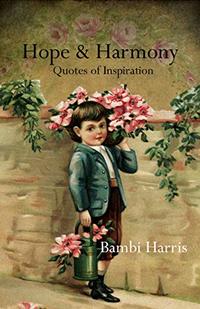Bambi Harris Interview Published on: 31, Jan 2020
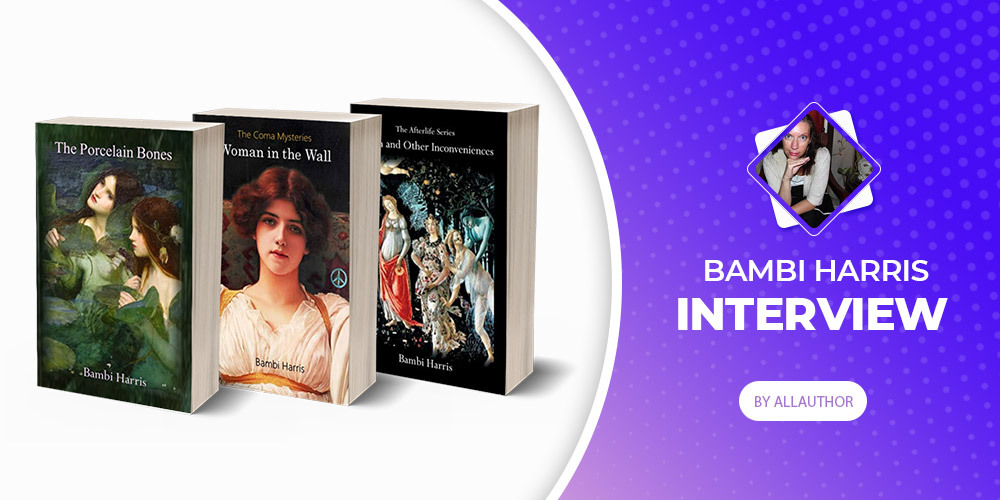 Who designed your historical museum themed house in rural USA?
Who designed your historical museum themed house in rural USA?
It was not so much designed as it was something that evolved. Like my writing, my husband and I had a love of history and wanted to bring the past to life. It is like walking into various time periods. We have a 50's kitchen, an 1800's general store, a Victorian era carriage, a two story mural and even mannequins in antique clothing. It is constantly changing, something creative when I'm taking a break.
Do you remember the first book you ever read? What was it about?Unconventionally I was never a big reader growing up, and am not one now either. When I have read books they are mostly about ancient Rome or the medieval period or true crime. I have always spent considerable time daydreaming, so I created more by living inside my own head instead of anyone else's.
What did you want to be when you were a kid? Did you ever dream of becoming a writer?I didn't think of writing until I was in my late twenties and I pursued it on a whim. When I was younger I wanted to be a singer or actor until I tried various things out and discovered it wasn't for me. I could have done radio more though, but I am happy with how things turned out.
What interests you the most about both adult and young adult themes in content?I actually write predominantly for adults but my writing doesn't have profanity or overtly sexual or violent 'scenes' so young adults can enjoy them too. I have had people of all ages enjoy my books and I am glad that my stories can be both fascinating, haunting, intriguing and include murder and darker topics but be versatile enough to garner audiences from all walks of life.
What is the most surprising thing you discovered while writing your book, "The Room"?The lead male protagonist in The Room is a crime scene photographer. Researching crime scene photography during the 1930's was truly fascinating. I like my characters to be unique and multi dimensional. It helps to research certain elements of the time periods I set my books in. The early days of crime solving were compelling because they were limited forensically. There was a lot of improvisation but they were more advanced than people would assume in their objectives and methods.
The Undisclosed is a very enjoyable mystery. What inspired the plot of the story?I liked the idea of someone finding old photographs, something tragic and mysterious, secretive and dangerous. It was a simple concept that I then built upon. To have a woman find old newspaper articles and photographs from her father's past after he died. An enigmatic man turns up on her doorstep saying he wants to help her find answers and she is not sure if he is trustworthy or not. What they find is remarkable, and that's what I wanted to capture the essence of. A picture tells a thousand words; what she sees solidifies her need to find out what happened.
Who inspired the character of a young man, Gilpin in "The Cobblestone Celestials?" How do you come up with character names?I do not use any real people as inspiration for my characters (except Penny Lane in The Afterlife Series has a lot in common with me). I love the name Gilpin and with most of my books being set in different time periods, I like to use more old fashioned or unique names, but nothing that lacks feasibility. Naming characters is one of my favorite parts of the process. I loved the name, Hollis McCrae (from The Antiquarian) so much, that I nearly used his name as the title of the book.
How did you begin writing The Memento Mortis Series?I wanted to do a series about a post mortem photographer in the 1800s. I have always been fascinated by the common practice of taking photographs of deceased love ones during that time period. There was a high mortality rate and photography was new and expensive so a lot of the time families didn't get photographs taken until someone had died. I thought it was a wonderful eerie setting, a widower, Claude Deering, on the outskirts of town bordering a church cemetery. Specters start to appear in his photographs and his assistance is sought in solving murders in the area. I wanted something dark, poignant but hopeful, it is all of those things.
What challenges did you face while setting "The Missing" in the year 1949?Oh I don't worry about challenges too much. If I hit an obstacle I have plenty of tricks in my bag to meander around something instead of being halted by it. All of my books are set in different time periods but they are character based. They are not about epic battles or upheavals during the period, rather they are about the personal stories of a small group of people separate from what is happening outside their walls. The missing is set in a house on a property near some woods and an old cemetery. The characters are a distance from the main town so the war was over and the radio was a good source of entertainment. Just the same, the characters are spending most of the time looking into a century of missing people so other than their garments, not too much is overly stressed as far as the era itself.
What sparked the idea for "Mysterious Encounters of a 40s Phone Operator"? How much did you research about the 1944 Homestead Hills to write the book?I had an affinity for the 40s both in music, decor and clothing. I just loved the idea of telephone operators. I imagined they would have heard just about anything, both mundane and salacious in their line of work. To patch people through and hear what was said, I thought there could be so many scenarios to capture one's interest in that concept alone. Homestead Hills is a fictional small town, the book is set in summer during war time of bonds and rations and it is one of my favorite settings. Violet lives a peaceful life with her dog in a house with a tire swing in the backyard and then suddenly there are strange lights in the sky at night and unusual eerie sounds and voices on the line. A mysterious man turns up seeking her help with the calls she is getting. I generally didn't have to research a lot, I already had a base knowledge of the era being an avid documentary watcher. I really enjoyed writing that one and it is still a fan favorite.
What challenges did you face while getting your first book published?Oh my gosh, so many challenges. Just knowing what to do, how to do it, where to go, who to ask. I didn't even know what questions to ask. It took me a long time to write my first book because I really didn't know if I would publish it. It is a daunting thing to face when you don't know what you're up against. Money, marketing, editing, formatting, how to publish it, it was overwhelming. It took me five or six books before I started to branch out on my own and take over the creative process. I am helping a writing group now and I hope I can ease their pain substantially by them utilizing my experience instead of going through what I did.
How do you think concepts such as Kindle, and e-books have changed the present or future of reading?There is a song from 1979 called, 'Video Killed the Radio Star' it is about how video clips and television came along and all the regular radio shows were no longer listened to because this new medium was a lot more exciting. I think some people might feel we are facing the extinction of paperbacks but even now they are bringing back record players. Nostalgia has a strong pull to it. A lot of people don't like electronic reading for comfort, lighting reasons and also because they like the feeling of turning a page. Like always, each generation will conform according to what is easiest and most popular but I don't see us facing electronic only reading just yet.
What are you currently working on? When can we expect the next book to release?I am two chapters into my current stand alone novel, Eerie Bluff. I am still in plotting stages but I hope to be done with it by April 2020. I usually write 3-4 books a year and can tell when a book is going to take longer to write. I always wanted to start a book with a woman's body being found in a river. It is set in the 30s and concentrates on a handful of mysterious deaths in the small foggy town of Eerie Bluff. The bodies have no obvious cause of death and it mirrors a centuries old case that was never solved. Like most of my books, it will have elements of death, murder and the paranormal as well as romance and mystery.
What do you think are the elements that make a good story?I am instinctively a story teller that writes things down. When someone pulls someone aside and starts telling them something remarkable that happened, that is a good story. It has to be astonishing, captivating and most of all compelling. You want the reader to seek answers, no matter what kind of genre. You want them to ask themselves, what happens next? They want to turn that page because there are questions in the air. They want to know more. A good story will take you by the hand and walk you through another world. It will make it effortless for you, it will all be laid out and the reader will simply be swept up in it.
How did you first come across the AllAuthor website? What do you like or dislike about the site?I believe it was an internet search about sites for authors. I like that it encourages a social element while featuring the authors, offering them opportunities to share their promotions and works. It has a good marketing foundation and has a personal feel to it.
Share Bambi Harris's interview
Bambi Harris is the Australian-American author who writes thought-provoking supernatural mystery. She has the ability to make the reader's senses come alive. She has a way of drawing you into the story as if you were actually part of it. Bambi infuses her books with little nuggets of wisdom and humor, and very detailed characters that you will love.
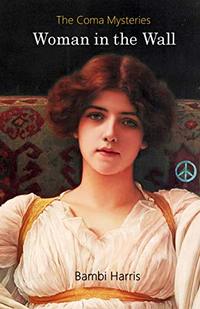 Woman in the Wall (The Coma Mysteries Book 4)
Genre: Historical Mystery, Mystery, Romance, Time Travel Romance, Fantasy
Woman in the Wall (The Coma Mysteries Book 4)
Genre: Historical Mystery, Mystery, Romance, Time Travel Romance, Fantasy
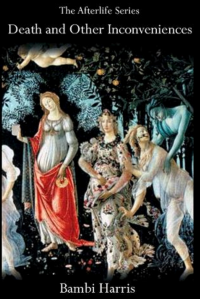 Death and Other Inconveniences (The Afterlife Series Book 1)
Genre: Mystery, Supernatural Suspense, Paranormal Romance, Romance, Fantasy
Death and Other Inconveniences (The Afterlife Series Book 1)
Genre: Mystery, Supernatural Suspense, Paranormal Romance, Romance, Fantasy
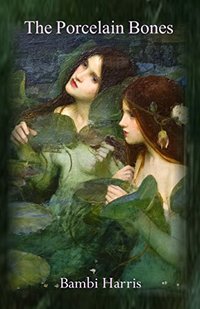 The Porcelain Bones
Genre: Historical Mystery, Thriller, Suspense, Mystery, Supernatural Suspense, Paranormal Romance, Romance
The Porcelain Bones
Genre: Historical Mystery, Thriller, Suspense, Mystery, Supernatural Suspense, Paranormal Romance, Romance
 The Tintype Cadavers (The Memento Mortis Series)
Genre: Crime Fiction, Historical Mystery, Supernatural Suspense
The Tintype Cadavers (The Memento Mortis Series)
Genre: Crime Fiction, Historical Mystery, Supernatural Suspense
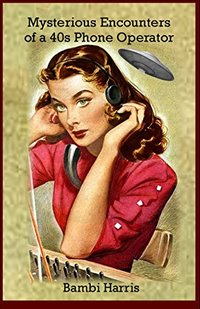 Mysterious Encounters of a 40s Phone Operator
Genre: Mystery, Supernatural Suspense, Paranormal Romance, Science Fiction
Mysterious Encounters of a 40s Phone Operator
Genre: Mystery, Supernatural Suspense, Paranormal Romance, Science Fiction
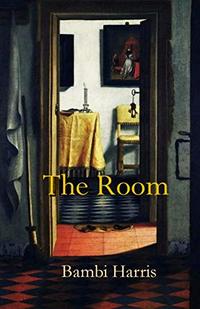 The Room
Genre: Crime Fiction, Historical Mystery, Thriller, Suspense, Mystery, Supernatural Suspense, Romance
The Room
Genre: Crime Fiction, Historical Mystery, Thriller, Suspense, Mystery, Supernatural Suspense, Romance
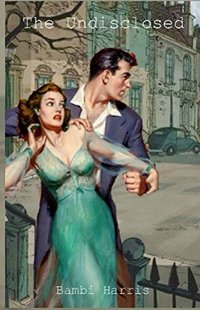 The Undisclosed
Genre: Crime Fiction, Historical Mystery, Thriller, Suspense, Mystery, Romantic Suspense, Science Fiction
The Undisclosed
Genre: Crime Fiction, Historical Mystery, Thriller, Suspense, Mystery, Romantic Suspense, Science Fiction
 The Vanished Captain's Ring
Genre: Historical Mystery, Mystery, Contemporary Romance, Paranormal Romance, Time Travel Romance, Science Fiction, Fantasy, Teen & Young Adult
The Vanished Captain's Ring
Genre: Historical Mystery, Mystery, Contemporary Romance, Paranormal Romance, Time Travel Romance, Science Fiction, Fantasy, Teen & Young Adult
 Ghost Retrieval and Cappuccino (The Afterlife Series Book 2)
Genre: Mystery, Supernatural Suspense, Romance, Fantasy
Ghost Retrieval and Cappuccino (The Afterlife Series Book 2)
Genre: Mystery, Supernatural Suspense, Romance, Fantasy
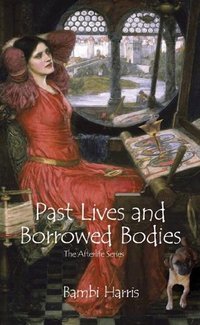 Past Lives and Borrowed Bodies (The Afterlife Series)
Genre: Historical Mystery, Mystery, Supernatural Suspense, Paranormal Romance, Romance, Fantasy
Past Lives and Borrowed Bodies (The Afterlife Series)
Genre: Historical Mystery, Mystery, Supernatural Suspense, Paranormal Romance, Romance, Fantasy
 Ancient Gods and the Angel Cafe' (The Afterlife Series Book 5)
Genre: Historical Mystery, Mystery, Supernatural Suspense, Action & Adventure, Paranormal Romance, Romance, Fantasy
Ancient Gods and the Angel Cafe' (The Afterlife Series Book 5)
Genre: Historical Mystery, Mystery, Supernatural Suspense, Action & Adventure, Paranormal Romance, Romance, Fantasy
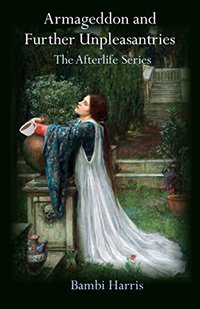 Armageddon and Further Unpleasantries (The Afterlife Series Book 6)
Genre: Paranormal Romance, Fantasy
Armageddon and Further Unpleasantries (The Afterlife Series Book 6)
Genre: Paranormal Romance, Fantasy
 Cherubim Castles and the Garden of Bliss (The Afterlife Series/ The Elysium Scrolls)
Genre: Paranormal Romance, Fantasy
Cherubim Castles and the Garden of Bliss (The Afterlife Series/ The Elysium Scrolls)
Genre: Paranormal Romance, Fantasy
 Elysium Warriors and the Banished Star (The Afterlife Series Book 8)
Genre: Paranormal Romance, Fantasy
Elysium Warriors and the Banished Star (The Afterlife Series Book 8)
Genre: Paranormal Romance, Fantasy
 Divine Despondence and the Lost Beloved (The Afterlife Series Book 9)
Genre: Paranormal Romance, Fantasy
Divine Despondence and the Lost Beloved (The Afterlife Series Book 9)
Genre: Paranormal Romance, Fantasy
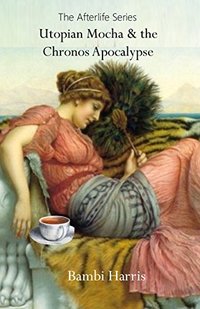 Utopian Mocha and the Chronos Apocalypse (The Afterlife Series Book 10)
Genre: Paranormal Romance, Fantasy
Utopian Mocha and the Chronos Apocalypse (The Afterlife Series Book 10)
Genre: Paranormal Romance, Fantasy
 Boy in the Coffin (The Coma Mysteries Book 2)
Genre: Historical Mystery, Suspense, Mystery, Supernatural Suspense, Romance, Time Travel Romance
Boy in the Coffin (The Coma Mysteries Book 2)
Genre: Historical Mystery, Suspense, Mystery, Supernatural Suspense, Romance, Time Travel Romance
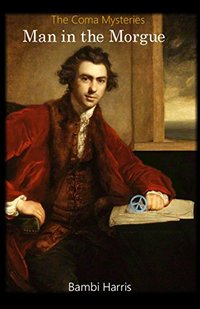 Man in the Morgue (The Coma Mysteries Book 3)
Genre: Historical Mystery, Suspense, Mystery, Supernatural Suspense, Romance, Time Travel Romance
Man in the Morgue (The Coma Mysteries Book 3)
Genre: Historical Mystery, Suspense, Mystery, Supernatural Suspense, Romance, Time Travel Romance
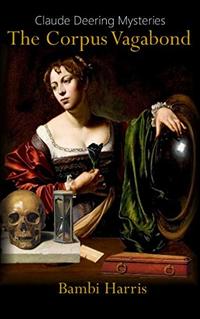 The Corpus Vagabond (The Claude Deering Mysteries Book 2)
Genre: Crime Fiction, Historical Mystery, Mystery, Supernatural Suspense, Historical Fiction
The Corpus Vagabond (The Claude Deering Mysteries Book 2)
Genre: Crime Fiction, Historical Mystery, Mystery, Supernatural Suspense, Historical Fiction
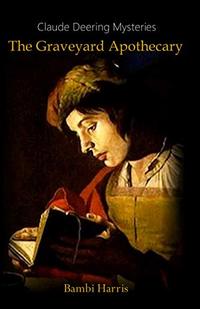 The Graveyard Apothecary (The Claude Deering Mysteries Book 3)
Genre: Crime Fiction, Historical Mystery, Mystery, Supernatural Suspense, Historical Fiction
The Graveyard Apothecary (The Claude Deering Mysteries Book 3)
Genre: Crime Fiction, Historical Mystery, Mystery, Supernatural Suspense, Historical Fiction
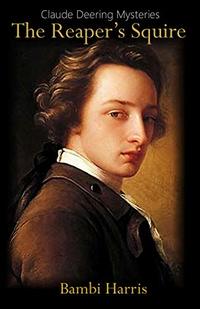 The Reaper's Squire (The Claude Deering Mysteries Book 4)
Genre: Crime Fiction, Historical Mystery, Thriller, Mystery, Supernatural Suspense
The Reaper's Squire (The Claude Deering Mysteries Book 4)
Genre: Crime Fiction, Historical Mystery, Thriller, Mystery, Supernatural Suspense
